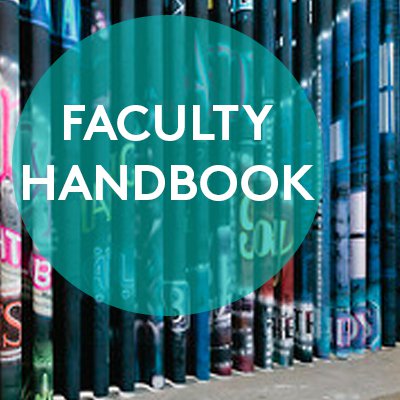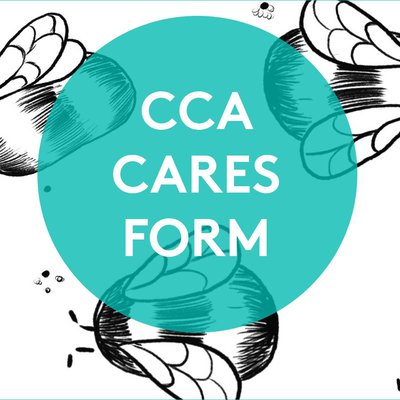Intellectual Property
Purpose Statement
Purpose StatementThe purpose of these Intellectual Property Tenets is to:
- maximize the development and open exchange of ideas and the generation of creative work product in the educational environment of California College of the Arts (“CCA”)
- provide guidance to the CCA community in the development and disposition of works created in connection with CCA
- provide a method for resolving potential ambiguities or conflicts, or both, regarding the ownership and disposition of such works
- facilitate the development, distribution and use of works created with CCA facilities by its students and faculty for the benefit of the public, and the benefit of CCA and its students and faculty
Some of the programs at CCA may give rise to exceptions to these Tenets.These Tenets are intended to evolve as the result of feedback from the CCA Community and will therefore change from time to time. To review the Intellectual Property Tenets in its entirety, download Intellectual Property Tenets (PDF).
Best Practices
For purposes of this appendix, the term “Author” applies to the creator, writer, artist and/or designer that creates an original work, whether or not that original work is based upon or includes the prior work of other artists, designers or writers.
Attribution
Whenever feasible, Author should provide credit to the artists and designers whose work the Authors uses and/or incorporates into the Author’s work.
Credits
Authors should include actual credit to artists and designers whose work is actually included in the Author’s work.
Speculative Work
In general, Authors should not solicit freelance work or employment engagements by preparing speculative works for commercial use by the potential employer.
Contests
Authors should not submit new works to contest sponsors for ownership or commercial use by the sponsor without the sponsor’s commitment to provide credit to that Author and to offer compensation for the work.
Terms of Engagement
Authors should obtain written terms of engagement for their services including at a minimum: deliverable, delivery schedule, payment and payment schedule, who will own the deliverable and whether the Author may use the deliverable in Author’s online and hard copy resumes, portfolios and/or reels, as applicable (“Standard Deal Points”).
Fair Payment
Authors should not engage third parties to do speculative work on the conditional promise of potential employment.
Authors should pay third parties a fair and reasonable amount for the work that they perform.
Authors should provide and agree in writing to the Standard Deal Points when Author engages any third party to perform services for or on behalf of Author.
Confidentiality
Authors should separate their own and third party confidential information from other information and materials in their possession and specifically mark confidential information in order to protect it from unintentional disclosure.
Authors should mark their own confidential information as proprietary and confidential before disclosing it to any third party.
If Author orally discloses confidential information, Author should follow up the disclosure with a written statement that the disclosure was and remains confidential.
Meetings & Follow-Up
Author should keep track of business meetings Author attends including the time, place, and people in attendance.
Confirm meetings in advance via email or note.
Confirm that the meeting took place, who attended and what materials were provided to others by Author at the meeting, all via thank you email or note.
Keeping a permanent record of these meetings enables later follow up, networking and protection of confidential information and disclosures. Author should track meetings by date, company and/or specific projects discussed. Cross referencing can be very helpful in the long run.
Back-Up of Information
Authors should not rely on computer based email for permanent records. Web based email that is stored by the service provider may be reliable. Authors should back up their computers and email on a regular (monthly) basis to a hard copy or disk that will not degrade over time.
Clearing Rights
Because Authors are creators of original works, and rely on the value of their own intellectual property, Authors should actively respect the intellectual property rights of others.
For legal and ethical reasons, Authors should obtain permission/consent/approval (“consent”) from third parties for use of third party art, design, performance, music, name, likeness, copyright, trademark and locations, each as applicable to the work that Authors are creating.
These consents should be obtained in writing.
Licenses
Authors should obtain required licenses for downloading or otherwise using the creative works of others such as photographs, music, motion pictures, artworks, etc.
Protection of Rights
Authors who do not intend or desire their works to be freely shared and use by others should register copyright in their works (as applicable) or post a license or disclosure to third parties that is visible on their works which states what uses Authors want to permit.
One example of how these licenses can work may be found at creativecommons.org.
Conflict of Interest
Authors should not concurrently provide services for competitor businesses without disclosing that to each of the clients and taking reasonable steps to avoid a conflict of interest.
In the course of providing those services, it is quite possible Authors will obtain confidential information from each client and inadvertently disclose it to the other client.



